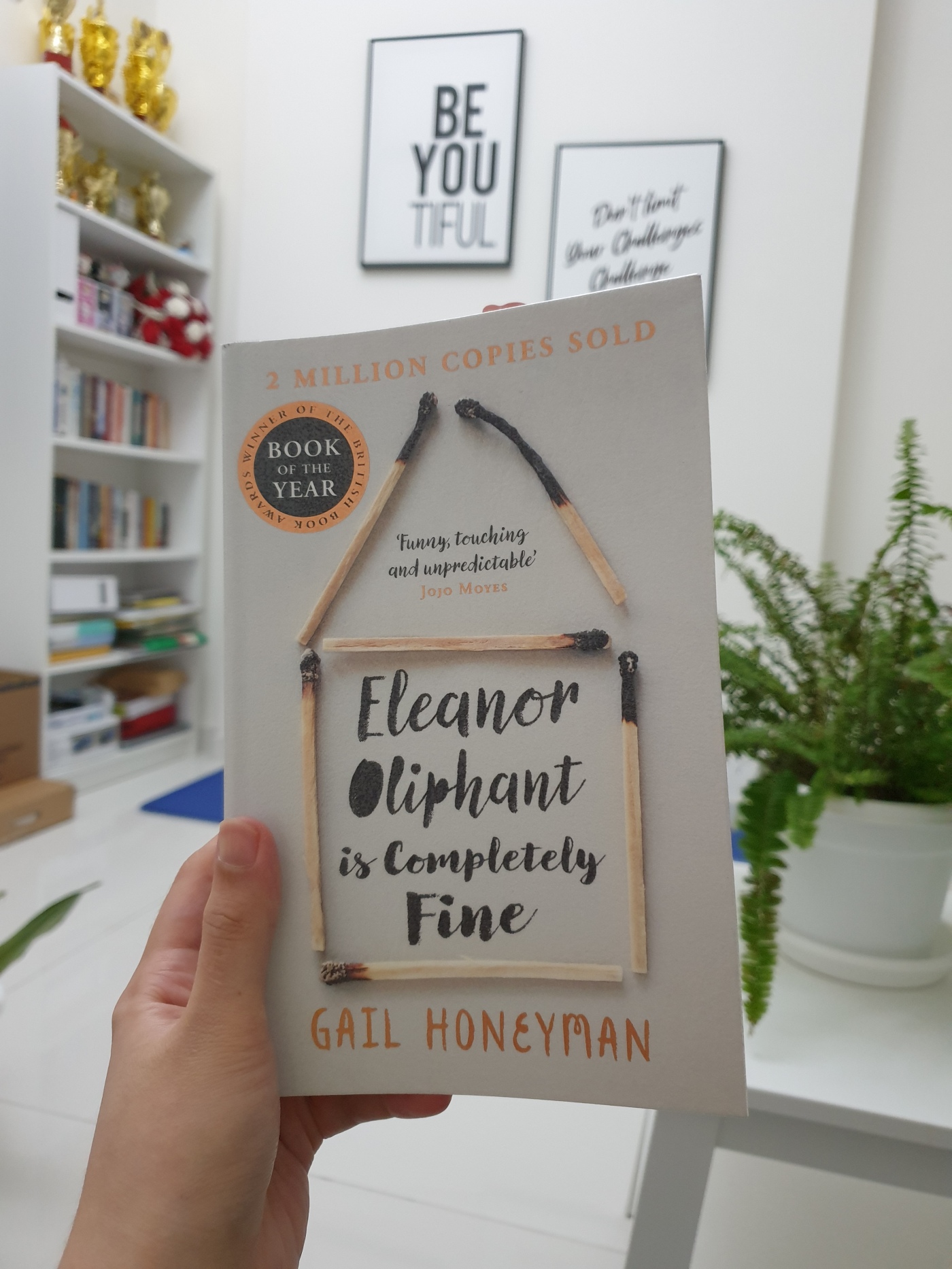You say that you’re okay, but are you truly okay?
It has been ages since I last picked a book to read and some time has passed since I wrote a book review. To be honest, I wasn’t even planning to add any more posts to my blog because I have been so busy. However, this single book changed my mind and revived my blog.
Eleanor Oliphant is Completely Fine is written by Gail Honeyman. It is a #1 New York Times bestseller and it has won multiple awards worldwide such as the Costa First Novel Award, the British Book Awards Book of the Year, and the BAMB Reader’s Choice Award. However, if I have to be honest, it was the review from Jojo Moyes that convinced me to pick the book from the shelves of Virgin Megastore and buy it.
You can tell if a story is good when the first few pages of the book transport you into its fictional world as paragraphs spring to life and quirky sentences give you a glimpse of the character’s personality. Written in the first-person point of view, the reader can instantly tell before the end of the first chapter that Eleanor Oliphant is an intelligent yet rather eccentric and socially awkward loner. Her constant inner monologue is amusing because she always has something to say about everything- no matter how inappropriate it may be.
However, as the story gradually unfolds, you begin to learn that Eleanor Oliphant is NOT fine at all. Eleanor Oliphant is a survivor of a traumatic childhood which left her with physical and psychological scars that she carries into adulthood. The novel effectively portrays the lingering effects that childhood trauma has on an individual. For Eleanor Oliphant, this was portrayed in her inability to let people into her life, her low sense of self-worth, and her poor grasp of reality.
Growing up with a physically and verbally abusive mother, verbal and physical abuse became normal for her and this was portrayed when Eleanor overhears jokes being made at her expense by her colleagues yet she makes no effort to stand up for herself. Her abusive past also normalized cruelty for her, making her readily accept the cruel treatment of her abusive ex-boyfriend who used to beat her.
In the book, Eleanor compares loneliness to cancer, highlighting the pain caused by the imagined social stigma that might happen if we make our pain public. As we progress further into the story, Eleanor provides glimpses of the shame and the fear that goes on in the mind of the person who is suffering in silence and how this hinders the process of recovery.
This is what I particularly like about the novel. It shows that many people suffer in silence and sometimes, those who say that they are ‘completely fine’ are not fine at all. It also highlights that at times, you are not always responsible for the bad things that happened in your life. It emphasizes how accepting the pain that comes from these experiences by acknowledging it is what is and there is nothing that you can do to change it is the key that will help you heal. It also shows that as simple as this advice on overcoming past painful experiences may be, applying it in your life requires a deliberate effort that takes years.
Lastly, another underlying message of this novel is to be kind. Be kind, because you never know what kind of ordeals people are suffering in silence. A simple act of kindness could be just what it takes to give that person the motivation that life is worth living.
Quotable quotes:
“Time only blunts the pain of loss. It doesn’t erase it.” Gail Honeyman in Eleanor Oliphant is Completely Fine
Tweet
“Sometimes you simply needed someone kind to sit with you while you dealt with things.” Gail Honeyman in Eleanor Oliphant is Completely Fine
Tweet
“These days, loneliness is the new cancer—a shameful, embarrassing thing, brought upon yourself in some obscure way. A fearful, incurable thing, so horrifying that you dare not mention it; other people don’t want to hear the word spoken aloud for fear that they might too be affli
Tweet
“Although it’s good to try new things and to keep an open mind, it’s also extremely important to stay true to who you really are.” Gail Honeyman in Eleanor Oliphant is Completely Fine
Tweet


Love this review thank you!! Will definitely add this to my reading list!
You’re welcome Rachel and I’m glad you found this helpful!
Happy reading 😀
I loved the book too. At first I felt a bit like an intruder into her life, as it feels so powerful.
Thanks Karen, and I agree with you too! This book is such an amazing read.